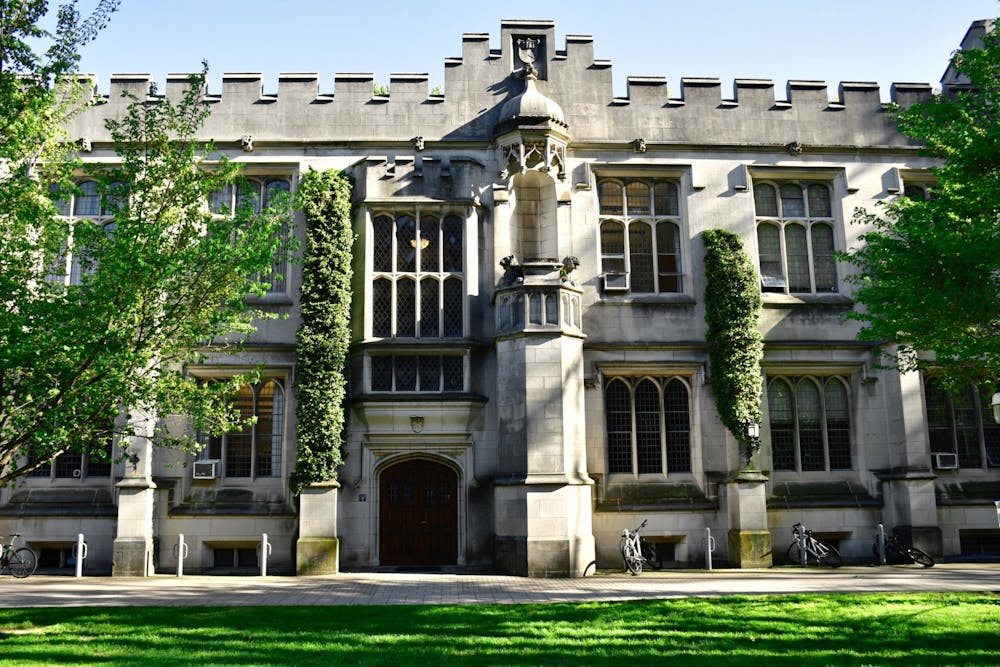Princeton is difficult — there’s no doubt about it. In fact, many of us even raved about it when we wrote that we wanted “academic rigor” in our college applications.
Yet the method with which Princeton administers midterms, specifically by integrating a week or two of exams into regular classes, is far more than what many of us asked for when we expressed our desire for academic rigor. The current midterm system detracts from our learning and has detrimental impacts on our health. In future semesters, the administration should change this system to support Princeton students.
At the moment, most classes continue providing regular assignments during the designated “midterm examination week,” including but not limited to readings, writing assignments, problem sets, and even presentations. While some professors often lessen the workload or even eliminate assignments altogether, many end up assigning a similar amount of work.
Balancing these assignments during a normal week can be challenging, but during midterm week, we are faced with a near-impossible tradeoff: do we give half-effort on assignments and focus solely on studying for exams, or do we try to balance both and risk doing poorly on such heavily-weighted assessments?
Achieving this balance would require students to exhibit immaculate efficiency in planning and reviewing. While in theory this is possible, it cannot be the expectation or the goal. We are humans that need leisure, social interactions, and exercise — and these elements should not be sacrificed for perfect academic efficiency.
Instead, many of us end up choosing to shift our attention from regular assignments to the most immediate looming threats. Yet this strategy has many dangers, too. For one, the material covered during midterm week can be tested during our final exams period, which means missing content can have significant consequences for our academic performance. But more importantly, having this enormous burden detracts from our actual understanding and appreciation of the materials. While the workload in a non-midterm week already makes it difficult to truly absorb class content to its fullest, having the shadow of midterms makes this an unfeasible task.
It is true that students have successfully survived previous midterm periods, but past victories should not define our system and prevent change. Most, if not all, students still feel the burden and anxiety of balancing exams and regular class assignments, regardless of their academic performance.
Ultimately, having midterms during regular class times has an immense toll on our mental, social, and even physical health (especially given the ongoing illnesses). We have already seen the impact of overtly rigorous academics on mental health during an online semester, and Counseling and Psychological Services saw an increase in student visits at the beginning of this semester.
Moreover, the current system causes social tensions and feeds the desperation for partying that Allen Liu ’22 so eloquently cautioned against in a recent column. Many of my peers, including myself, look longingly to Thursday or Friday night, when midterms are finished and we can escape reality through intense partying — which is unsustainable and can lead to dangerous outcomes.
Perhaps the main advantage, or even need, for classes to continue during midterms is to allow professors to cover the necessary material in time for the end of the semester.
Yet change can take many forms, and it does not necessitate separating a midterm week from classes altogether, though this would be ideal. Instead, Princeton could follow many different routes, whether that means institutionally encouraging instructors to lessen the course load by cancelling some classes or eliminating assignments during midterm period.
Granted, as a student unfamiliar with the University’s decision processes, I do not completely understand the careful planning and difficult work that goes into coordinating a midterm period. Perhaps my ignorance prevents me from understanding the need for preserving classes as normal during a midterm week.

Yet, while I may lack knowledge of the school’s inner workings, I do know the impact of this system. I do know that many of my classmates — myself included — are experiencing significant hardships when trying to juggle proper learning and midterm grades. I do know that this has had detrimental effects on my academic performance and mental health, and I do know the same has occurred with many of my friends. Ultimately, this system has caused too much harm to the student population.
It would be remiss of me to ignore that many instructors (including my own) have provided support and accommodations, understanding the difficulties that we face. Many of my professors have relaxed assignment deadlines or at least assigned less work. Yet institutional changes must occur to ensure that all classes can do the same for their students, rather than students having to rely on or request for individual professors to make changes. This is especially true since requesting accommodations can often equate to a simple delay of the inevitable.
If Princeton truly wishes to prioritize mental health and live up to the “unparalleled support for students” it boasts, it must change how it does midterms. That way, it can prevent academic rigor from becoming academic impossibility.
Won-Jae Chang (he/him) is an Associate Opinion Editor from Seoul, South Korea and New York, N.Y. He can be reached at wonjaec@princeton.edu.








